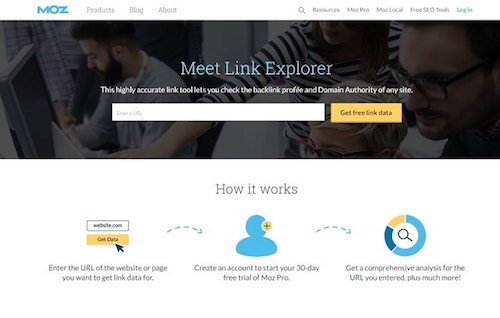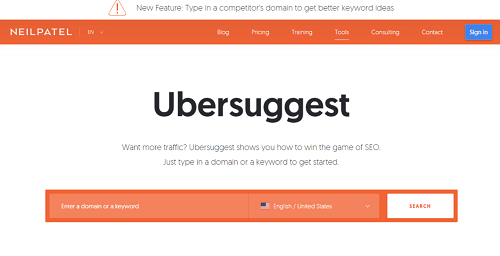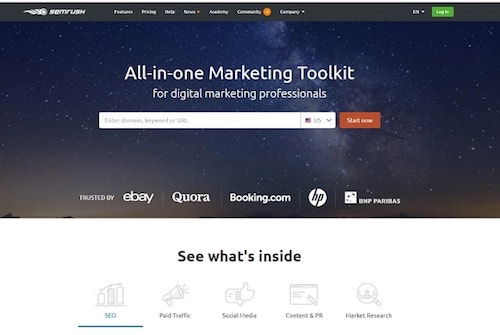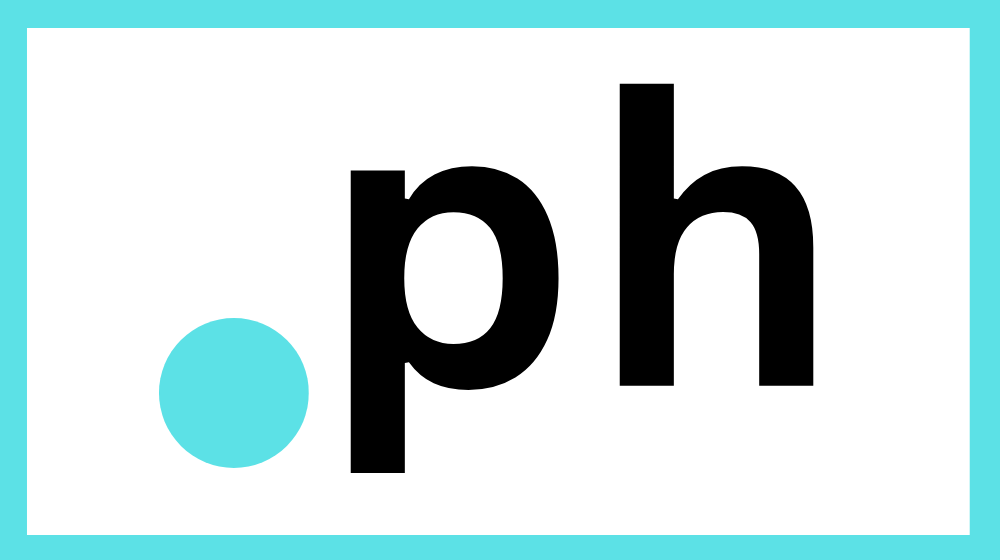Why should you care about domain authority? By now, you realize just how important it is for your site to be visible in search engines.
Search engines like Google are the primary mode of discovery for billions of users. Therefore, if you can get your site at or near the top rankings for relevant keyword phrases, you can secure an ever-growing stream of new traffic to your website.
But many online business owners neglect a fundamental element of search engine optimization (SEO) strategy: domain authority.
Learning how to increase domain authority and using a good domain authority checker can dramatically improve your overall SEO results.
In this guide, you’ll learn the intricacies of how to calculate domain authority, why domain authority matters, and the strategies you need to be successful in improving it.
Related: What is SEO and why is it worth your time?
What is domain authority?
Let’s start with a basic outline of what domain authority is and how it functions. When someone refers to “domain authority,” it can be in reference to one of two things:
- A cumulative score of trustworthiness for a given web domain
- A metric developed by Moz to predict how likely a website’s pages are to display prominently in search results pages.
The first definition refers to an unconfirmed but widely assumed general set of criteria for how Google and other search engines order results in search results pages. Moz took the idea and gave it the official name “domain authority” (often abbreviated as “DA”).
Factors affecting how your website shows up on SERPs
When search engines formulate search engine results pages (SERPs) they usually look for two things. Relevance, or how appropriate the content is for the given query, and trustworthiness, or how valuable and reputable the content is.
Google is highly protective of its algorithm, and doesn’t reveal much about how its rankings are calculated, other than general advice about publishing quality content. However, SEO experts (like the smart folks over at Moz) have come up with their own estimated formulations for domain authority, which have been shown to highly correlate with actual observed search rankings. Moz’s scale runs from zero to 100, with zero generally being assigned to brand new sites with no authority, and 100 being the most trustworthy sites on the web.
We’ll get more into how domain authority is calculated and how to increase domain authority later. But for now, understand that Google takes into consideration a mixture of content quality, domain history, and inbound link profiles. Moz’s DA formula, on the other hand, relies mostly on inbound links.
Domain authority applies across your entire domain, so every page of your site shares the same domain authority rating.
You might also want to consider page authority, which is similarly calculated, except it applies at the page level. For example, you could have a high domain authority, but if one piece of content you published has a significantly higher page authority than your other pages, it’s going to perform comparatively better in organic search results than the rest of the pages on your site.
Related: Everything you need to know about domain names, Picking the right domain name for your local business
Why is domain authority different from other SEO tactics?
The first SEO strategy most webmasters learn is how to optimize for strategically relevant keywords.
The basic principle idea here is to include important keywords (and other related keywords) within the body of your content, to increase their likelihood of ranking for queries with similar wording.
Website owners who follow this strategy while ignoring other SEO tactics are often perplexed to learn that their search rankings aren’t improving as expected.
Focusing on domain authority is distinct from keyword-based tactics for several important reasons:
The authority factor
Remember, search engines need to see both relevance and authority to regard you highly for SERPs. As the name suggests, improving your domain authority is critical for improving the “authority” side of the equation.
Without it, even the best keyword optimization strategies are going to fall short because search engines will have no way to measure whether or not that content is trustworthy.
Sitewide application
Your domain authority applies to your entire site, including any subdomains you have and any and all pages of content you produce.
It’s a rising tide that lifts all boats.
Growth and sustainability
Domain authority is hard to increase because it depends on so many factors. However, once you start increasing it, it’s relatively easy to preserve that momentum. Over time, your domain authority will get higher and higher, boosting your site’s visibility in search results almost permanently
Short of following black-hat SEO tactics, there are few ways to decrease your domain authority, so you’ll likely continue reaping the benefits of your domain authority investments for years to come.
Related: What is a meta description?
Why is measuring domain authority useful?

With the help of a domain authority checker, you can numerically measure your site’s domain authority, on a scale of 0 to 100. Why is this useful?
For starters, it’s a good indicator of the overall health of your SEO campaign. Your domain authority can increase thanks to better on-site content, more inbound links and other factors. So if you see your DA ticking upward, it’s a good sign you’re doing things right.
Additionally, it’s a useful measure for competitive analysis. Understanding that your top competitor has a higher domain authority than you can help you identify some of the specific tactics that set them apart. It can also help you determine when it’s worth fighting a competitor for a contentious keyword phrase, and when it might be wiser to back off.
Related: How to find inspiration from your competitors (without stealing their ideas)
How do you calculate domain authority?
Now let’s investigate how to score your domain authority.
Inbound link profile
There are several minor factors that play into your domain authority, but the biggest factor is your inbound link profile. Google’s search algorithm relies on a system known as PageRank, which basically calculates a site’s trustworthiness based on the number and quality of links pointing to it.
A site with many links pointing to it will typically be seen as more authoritative than one with few links pointing to it.
However, there are many other factors to consider. For example, links from more trustworthy sources pass more authority than links from new or untrustworthy ones, and it’s better to have links from many different sources than it is to have many links all from one source; a concept known as “domain diversity.”
Accordingly, link building is one of the best ways to increase domain authority.
Related: How to get backlinks to a small business website
Other factors include:
Site structure
Sites that are properly and strategically structured for search engines to crawl are going to be considered a higher domain authority than sites that aren’t. If Google can’t even see your site, or if it takes a long time to crawl your site, your domain authority could be negatively affected.
Page navigation architecture and internal linking are exceptionally important parts of influencing page authority, as well. The more internal links that point to a particular page on your site, the more authority that’ll flow to that page.
You can think of it like a bucket full of water. The water is your domain’s total authority. Every link you make within your site to another page within your site directs some of that water to flow to that page. Be sure to add more links to pages you want to have higher authority, which will help them rank higher in search results.
On-site content quality
Google has built-in algorithms that are able to calculate content quality, or at least estimate it. Using evaluations like natural language recognition, Google can reward sites with better-written material.
But it’s not just the quality of writing that matters. Content length has been shown to be an important factor in rankings. And Google considers E-A-T (Expertise, Authority, and Trustworthiness). The author who wrote the content matters; if they aren’t an expert in their field, that can hurt the expertise rating.
For a list of factors that make up high quality content, see this article.
Domain history
Older domains tend to carry more authority than newer ones. This is because spammers often “turn and burn” new domains, which makes them harder to trust. As a result, brand new domains often experience the “Google sandbox” which is a period of 6-12 months during which they find it extra difficult to achieve favorable Google search rankings. Don’t let it discourage you if you’re starting a new site from scratch, though; it’s something most domains have to go through. You can circumvent this limitation by buying an old, established domain, or one that already has many inbound links pointing to it.
Note that domain authority is best used as a comparative tool, and might not have a one-to-one relationship with search rankings. In other words, a site with a higher domain authority won’t universally outrank a site with a lower one.
Domain authority checker tools
So how can you measure your domain authority? The best way is with an online domain authority checker. These are some of the best tools available:
Moz’s Link Explorer

Moz is the company that defined domain authority initially and set the zero to 100 scale. You can use its Link Explorer tool to calculate the DA of practically any domain and analyze the links pointing to it at the same time. You’ll be limited in how many queries you make unless you pay for full access.
Ubersuggest

Ubersuggest is a set of SEO tools that includes a basic domain authority checker, and it should give you all the information you need within seconds. All you have to do is plug in the URL you want to check, and you’ll see its DA, page authority and more.
SEMRush

SEMRush is a paid search analytics tool, but you can make 10 free queries when you create an account. With it, you’ll get access to measurements like domain authority, page authority and SEO-related data like search rankings and organic traffic.
Editor’s note: Do you need some expert help with search engine optimization (SEO)? Check out GoDaddy’s SEO Services today! After a free consultation, we’ll work with your business to help you rank higher and earn more traffic.
How can you increase domain authority?
Now let’s get into how to increase your domain authority. Let’s assume you’ve structured your site in a crawlable way. And you have no real control over the length of time your domain has been active.
1. Produce high-quality content
Your first step is to produce high-quality content for your blog on a regular basis.
High-quality content is not only going to directly increase your domain authority, but it’s also going to serve as an anchor point for the links you build for your domain.
High-quality content is free of spelling and grammatical errors, has a diverse vocabulary, natural speech patterns (i.e., no keyword stuffing), and links to other valuable sources. Most importantly, it provides value to readers.
It’s also important to publish new content regularly since Google disproportionately favors new content. Aim to produce at least one high-quality post per week, if not more, but remember to prioritize quality over quantity.
Related: Editorial calendar — The content, keyword and SEO connection
Earn inbound links
![Chain Links Represent Inbound Links for Domain Authority]](https://www.godaddy.com/resources/wp-content/uploads/chain-links-represent-inbound-links-for-domain-authority.jpg)
Your next step is to earn more inbound links for your site.
This is the best way to increase your domain authority, but it’s also the trickiest. That’s because Google is acutely aware of the possibility that webmasters are building fraudulent or manipulative links for the sole
purpose of increasing their
domain authority and search
rankings.
Accordingly, focus your link building strategies on providing value to web users while simultaneously pointing to your site.
The safest approach is to promote your best content in the hopes that other writers will see it and cite it in their own work.
For example, you can distribute your content on social media, complete with original research and statistics that other content producers will link to.
However, relying on others to find and link to your content is often an exercise in disappointment. It’s often more reliable and pragmatic to build links on your own. If you want those links to be relevant and valuable to web users, the best way is through guest posting with external publishers. The idea is to write an article that the publisher (and their audience) will find valuable. After which, find a way to relevantly link to your on-site content in the body of that article. For example, you might cite your own original research or link to a guide you’ve written for further reading.
Related: How to start guest posting for your business
Link building strategies
Link building is a complex strategy that takes years to truly master. Still, you can refer to these introductory tips to start off:
Prioritize content quality. New link builders often get carried away trying to link to their work no matter what, but it’s vital to prioritize the quality of your content above everything else. You content wouldn't get featured if your articles seem slapped-together or poorly researched.
Always link in a relevant, valuable way. Your link can’t be shoehorned in, or it’s going to be removed or look spammy. Link your on-site content in a way that’s valuable to readers and relevant to the topic at hand.
Keep seeking new publishers. Subsequent links on the same publisher will yield diminishing returns, so always keep seeking visibility on new publishers.
Point to many different articles. Keep your page authority in mind, and try to build links to a variety of internal pages.
Work toward obtaining links from high DA publishers. The higher the domain authority of the referring domain, the more authority you’ll gain from a link built on it. High DA sites often have high standards for the content they publish. Therefore, consider starting with low DA sites and gradually working your way up.
Avoid link schemes. Many sites will promise to increase your domain authority quickly, or build you lots of links in a short period of time. These are usually link schemes, and they’re going to do more harm than good. If it sounds too good to be true, it probably is.
Here’s an excellent guide to link building to help get you started.
Start building domain authority
It’s practically impossible to rank higher in search engines unless you spend time focusing on improving your domain authority. There are plenty of secondary benefits to authority-boosting strategies as well.
Rely on link building and content development to be the pillars of your strategy, and keep an eye on your competitors so you continue to improve.
This article includes content originally published on the GoDaddy blog by Christopher Ambler.






